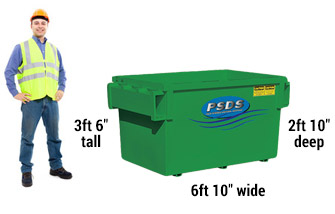What is Commercial Organics Waste and How Do I Recycle It?
Organic waste consists of Yard Waste (like plants, trimmings and grass clippings) and Food Scraps (such as cooked meat, produce, and dairy, as well as food-soiled paper plates and paper products, coffee grounds, tea bags and the like). Both classes of waste may be recycled. Scroll down to review a complete list of acceptable items.
California businesses have been required to direct their organic waste to a permitted facility since State Assembly Bill 1826 was passed on April 1, 2016.
Which Carts Do I Use for Commercial Organics Recycling?
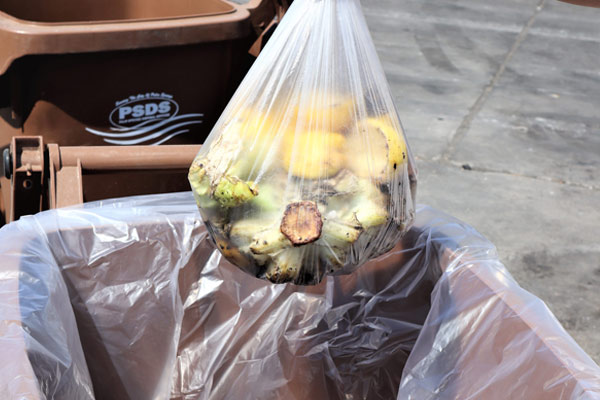
Brown Cart is for Source Separated Food Waste
Food waste can be bagged in compostable bags, clear or white plastic bags and/or paper bags. Brown carts are used for source separated food waste and can be lined with clear plastic bags.
- 35 gallon brown cart
- 65 gallon brown cart
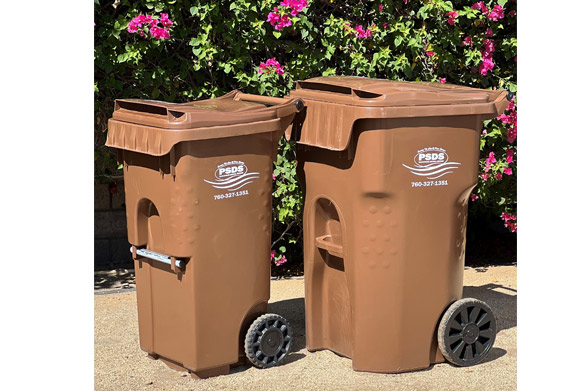
Acceptable Food Waste
- Bones
- Breads and Grains
- Cheeses
- Coffee Grounds/Filters
- Dairy Products
- Food Waste
- Fruits and Vegetables
- Meat
- Oils
- Paper Soiled with Food
- Poultry
- Tea Bags
These Items are NOT Acceptable
- Raw Fish
- Raw Meat
- Raw Poultry
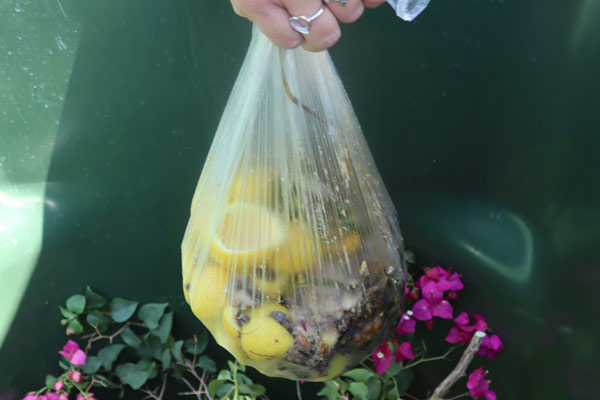
Green Cart or Green Bin is for Mixed Organics (yard waste + food waste)
Do NOT put yard waste in plastic bags. ONLY food waste should be bagged. Yard waste + food waste should be placed in green carts or bins.
- 35 gallon green cart
- 65 gallon green cart
- 95 gallon green cart
- 2 or 3 cubic yard green bin
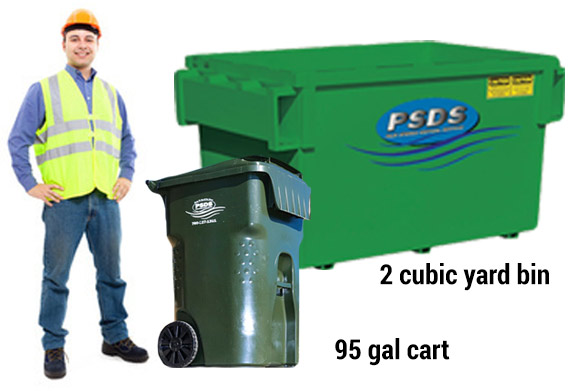
Acceptable Mixed Organics Waste
- Bones
- Breads and Grains
- Cheeses
- Coffee Grounds/Filters
- Dairy Products
- Food Waste
- Fruits and Vegetables
- Meat
- Oils
- Paper Soiled with Food
- Poultry
- Tea Bags
- Green Waste
- Landscape Waste
- Pruning Waste
- Tree Branches and Trunks
- Untreated Wood
These Items are NOT Acceptable
- Raw Fish
- Raw Meat
- Raw Poultry
- Glass
- Metal
- Plastic and Styroform
